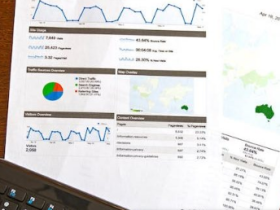By Dr Clarence Yeo
MB ChB (Dublin)
A Health screening
involves the use of simple tests on apparently healthy individuals to identify those who have risk factors or early stages of a disease, but do not yet have symptoms.
For many, going for a health screen can be a daunting affair. The apprehension and trepidation of undergoing physical examination and screening tests at a clinic may stem from a fear of discovering a disease they have. It is a form of denial – they assure themselves they are fine while worrying, deep down, that they are not.
Some people avoid tests out of pure apathy – this is a phenomenon referred to as information aversion. They would rather not know about a problem with their health so that they do not have to fret about it, hence they see health screening as an unnecessary stress or anxiety.
To others, they question the rationale of scouring for issues with their health when they feel perfectly well. In my experience, this would be by far the most common occurrence. They have the misconception that if they do not have any symptoms, they are in the pink of health and hence do not require any health screenings.
But the benefits of taking a health screening far outweigh the fear and discomfort of taking one.
Benefits
- Early detection makes a disease more responsive to treatment
In reality, many diseases have no symptoms, especially in the early stages, and this is precisely the rationale and basis of a health screening – to pick up a disease as early as possible. A disease is more responsive to treatment when picked up early. Finding out about your health problems early empowers you to take charge of your own physical and mental well-being, and to change your own health outcomes. You are able to take steps to make the necessary lifestyle changes or seek the right treatment to improve your health.
- Early detection stops an ailment from becoming a chronic disease
Catching an ailment in the early stage may prevent it from becoming a chronic disease. Complications of the disease can also be avoided and hence, morbidity and mortality, as well as healthcare costs of the disease. are reduced. Hence, health screening is our greatest weapon in fighting chronic diseases.
- Early detection helps contain infectious diseases
You can prevent yourself from spreading a contagious disease unknowingly, especially to loved ones.
It’s not that painful, really…
Patients often assume health screening will be uncomfortable or painful, invasive or involve unnecessary risks. Health screening, in general, is not an unpleasant experience. Other than venipuncture for blood taking, there is no pain involved. Tests are usually not invasive, and carry minimal or no risks.
It doesn’t take that much time…
The duration of a health screening depending on how comprehensive it is, shouldn’t take more than 30 minutes. However, time spent for a health screening is time well spent because it’s an investment in your health.
Conclusion
Health screening should be perceived and regarded positively. It helps to detect diseases and identify common risk factors for chronic diseases, thus enabling you to take steps to protect yourself. It also gives you a sense of reassurance and well-being when it turns out to be normal.
Health screening is not only the best protection for your health but also the best resource for improving your overall health and wellbeing.








Leave a Reply